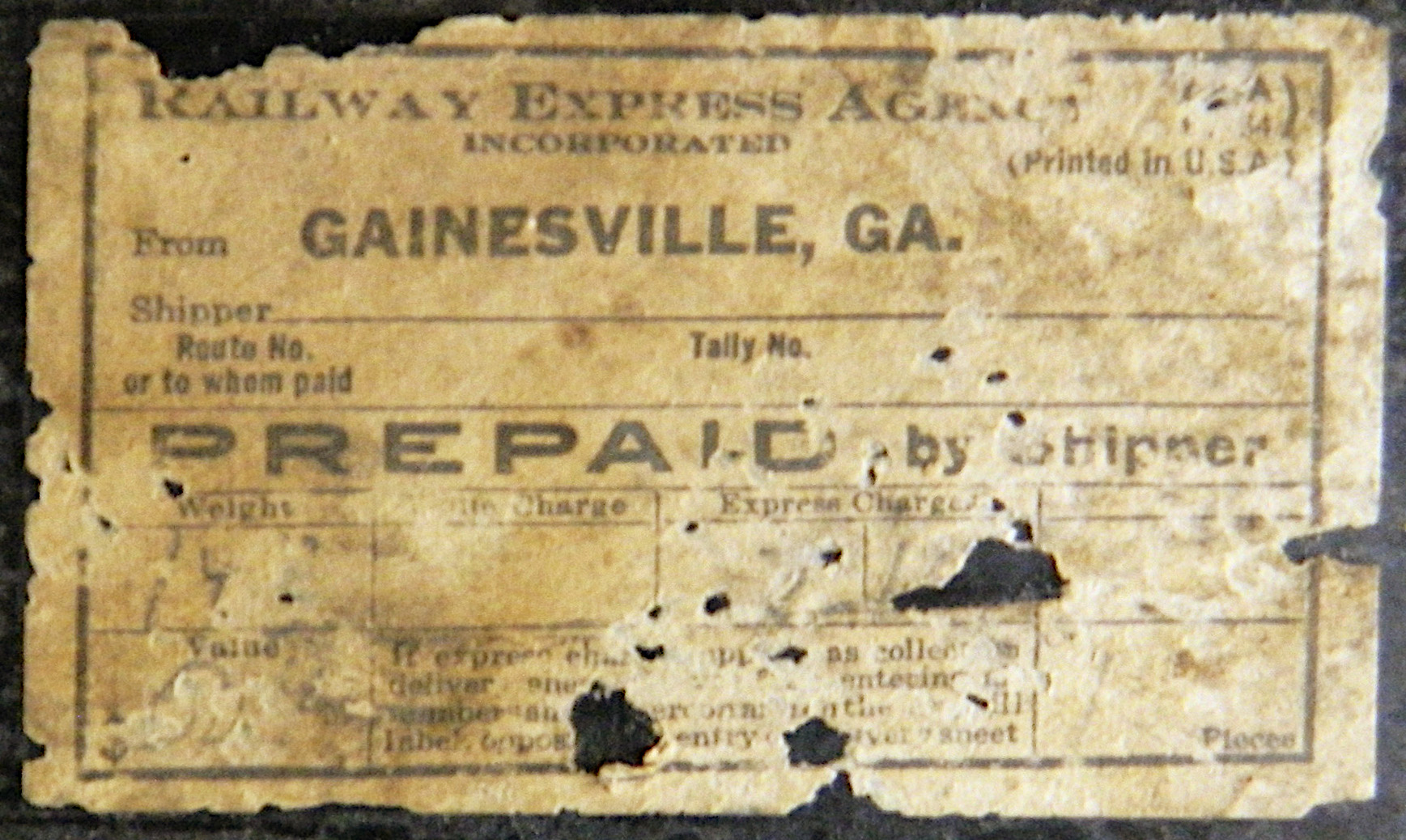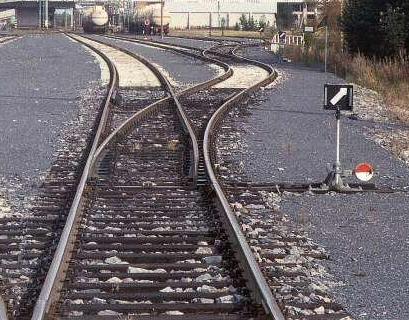|
Fast Mail (Milwaukee Road)
The ''Fast Mail'' was a train service operated by the Chicago, Milwaukee, St. Paul and Pacific Railroad (the "Milwaukee Road") on an overnight schedule between Chicago, Illinois, and Minneapolis, Minnesota. The southbound trains (to Chicago) were Milwaukee Road train Nos. 56 and 58, and the northbound trains (to Minneapolis) were train Nos. 55 and 57. In its early years, this train service helped earn the Milwaukee Road's line the nickname "The Fast Mail Line." In 1924, the ''Fast Mail'' was the target of the largest train robbery in U.S. history. The ''Fast Mail'' was discontinued with train 56's arrival in Chicago on May 1, 1971. History and operation The service, developed as part of a nationwide "fast-mail" system, was inaugurated on March 13, 1884, with a special run departing northward from Chicago at 3:04 AM (four minutes late owing to a late arrival in Chicago by the connecting fast mail train from New York), arriving in Minneapolis at 3:50 PM the same day. For the ... [...More Info...] [...Related Items...] OR: [Wikipedia] [Google] [Baidu] |
Midwestern United States
The Midwestern United States, also referred to as the Midwest or the American Midwest, is one of four census regions of the United States Census Bureau (also known as "Region 2"). It occupies the northern central part of the United States. It was officially named the North Central Region by the Census Bureau until 1984. It is between the Northeastern United States and the Western United States, with Canada to the north and the Southern United States to the south. The Census Bureau's definition consists of 12 states in the north central United States: Illinois, Indiana, Iowa, Kansas, Michigan, Minnesota, Missouri, Nebraska, North Dakota, Ohio, South Dakota, and Wisconsin. The region generally lies on the broad Interior Plain between the states occupying the Appalachian Mountains, Appalachian Mountain range and the states occupying the Rocky Mountains, Rocky Mountain range. Major rivers in the region include, from east to west, the Ohio River, the Upper Mississippi River, and ... [...More Info...] [...Related Items...] OR: [Wikipedia] [Google] [Baidu] |
Newton Gang
The Newton Gang (ca. 1919 through 1924) was an outlaw gang of the early 20th century, and the most successful train robbers and bank robbers in history. From 1919 through 1924 the gang robbed dozens of banks, claiming a total of eighty-seven banks (unconfirmed) and six trains (confirmed). According to Willis Newton, the brothers "took in more money than the Dalton Gang, Butch Cassidy's Wild Bunch and the James-Younger Gang combined." According to their own claims, they never killed anyone. It is true that they were never charged with any death or injuries associated with their robberies, although one daylight robbery in Toronto, Ontario, Canada proved nearly fatal for one bank messenger. For the 1924 train robbery near Rondout, Illinois (the world's largest at the time) the brothers gained a second round of fame in their retirement, long after they had given up their criminal careers. In 1975, they participated in a documentary film, and then a more in-depth oral history proj ... [...More Info...] [...Related Items...] OR: [Wikipedia] [Google] [Baidu] |
Named Passenger Trains Of The United States
Named may refer to something that has been given a name. Named may also refer to: * named (computing), a widely used DNS server * Naming (parliamentary procedure) Naming is a procedure in some Westminster parliaments that provides for the speaker to temporarily remove a member of parliament who is breaking the rules of conduct of the legislature. Historically, "naming" refers to the speaker's invocation of ... * The Named (band), an American industrial metal group In literature: * '' The Named'', a fantasy novel by Marianne Curley * The Named, a fictional race of prehistoric big cats, depicted in '' The Books of the Named'' series by Clare Bell See also * Name (other) * Names (other) * Naming (other) {{disambiguation ... [...More Info...] [...Related Items...] OR: [Wikipedia] [Google] [Baidu] |
Passenger Trains Of The Milwaukee Road
A passenger (also abbreviated as pax) is a person who travels in a vehicle, but does not bear any responsibility for the tasks required for that vehicle to arrive at its destination or otherwise operate the vehicle, and is not a steward. The vehicles may be bicycles, buses, passenger trains, airliners, ships, ferryboats, and other methods of transportation. Crew members (if any), as well as the driver or pilot of the vehicle, are usually not considered to be passengers. For example, a flight attendant on an airline would not be considered a passenger while on duty and the same with those working in the kitchen or restaurant on board a ship as well as cleaning staff, but an employee riding in a company car being driven by another person would be considered a passenger, even if the car was being driven on company business. Railways In railway parlance, passenger, as well as being the end user of a service, is also a categorisation of the type of rolling stock used.Simmons, ... [...More Info...] [...Related Items...] OR: [Wikipedia] [Google] [Baidu] |
Railway Express Agency
Railway Express Agency (REA), founded as the American Railway Express Agency and later renamed the American Railway Express Inc., was a national package delivery service that operated in the United States from 1918 to 1975. REA arranged transport and delivery via existing railroad infrastructure, much as today's UPS or DHL companies use roads and air transport. It was created through the forced consolidation of existing services into a national near-monopoly to ensure the rapid and safe movement of parcels, money, and goods during World War I. REA ceased operations in 1975, when its business model ceased to be viable. Early history Express delivery in the early 19th century was almost all by horse, whether by stagecoach or riders. The first parcel express agency in the United States is generally considered to have been started by William Frederick Harnden (1812–1845), who in 1839 began regular trips between New York City and Boston, Massachusetts, as a courier transp ... [...More Info...] [...Related Items...] OR: [Wikipedia] [Google] [Baidu] |
Brakeman
A brakeman is a rail transport worker whose original job was to assist the braking of a train by applying brakes on individual wagons. The earliest known use of the term to describe this occupation occurred in 1833. The advent of railway air brake, through brakes, brakes on every wagon which could be controlled by the driver, made this role redundant, although the name lives on in the United States where brakemen carry out a variety of functions both on the track and within trains. By country Germany In Germany, the brakemen occupied brakeman's cabins on several or even all wagons in a train and would operate the wagon brakes when signaled by the engine driver. It was a dangerous and uncomfortable role, especially in winter when it was not uncommon for brakemen to freeze to death in the unheated cabins. The function was abolished in the 1920s with the introduction of Railway air brake, air brakes, which could be controlled by the engine Train driver, driver. United Kingdo ... [...More Info...] [...Related Items...] OR: [Wikipedia] [Google] [Baidu] |
Sturtevant, Wisconsin
Sturtevant is a village in Racine County, Wisconsin, United States. The population was 6,919 at the 2020 census. History Sturtevant was originally known as Parkersville, after the Parker family, early settlers in the area. Other former names for Sturtevant are Western Union Junction and Corliss. The name ''Corliss'' referred to the Brown Corliss Engine Company of Milwaukee. The name ''Sturtevant'' was selected in 1923, when the Massachusetts-based B. F. Sturtevant Company opened a plant. Geography Sturtevant is located at (42.698819, -87.899202). According to the United States Census Bureau, the village has a total area of , all of it land. Demographics 2010 census As of the census of 2010, there were 6,970 people, 2,103 households, and 1,373 families living in the village. The population density was . There were 2,240 housing units at an average density of . The racial makeup of the village was 78.8% White, 15.9% African American, 0.7% Native American, 1.0% Asian, 1.3 ... [...More Info...] [...Related Items...] OR: [Wikipedia] [Google] [Baidu] |
Railroad Switch
A railroad switch (), turnout, or ''set ofpoints () is a mechanical installation enabling railway trains to be guided from one track to another, such as at a railway junction or where a spur or siding branches off. The most common type of switch consists of a pair of linked tapering rails, known as ''points'' (''switch rails'' or ''point blades''), lying between the diverging outer rails (the ''stock rails''). These points can be moved laterally into one of two positions to direct a train coming from the point blades toward the straight path or the diverging path. A train moving from the narrow end toward the point blades (i.e. it will be directed to one of the two paths, depending on the position of the points) is said to be executing a ''facing-point movement''. For many types of switch, a train coming from either of the converging directions will pass through the switch regardless of the position of the points, as the vehicle's wheels will force the points to mov ... [...More Info...] [...Related Items...] OR: [Wikipedia] [Google] [Baidu] |
Derailment
In rail transport, a derailment occurs when a rail vehicle such as a train comes off its rails. Although many derailments are minor, all result in temporary disruption of the proper operation of the railway system and they are a potentially serious hazard. A derailment of a train can be caused by a collision with another object, an operational error (such as excessive speed through a curve), the mechanical failure of tracks (such as broken rails), or the mechanical failure of the wheels, among other causes. In emergency situations, deliberate derailment with derails or catch points is sometimes used to prevent a more serious accident. History The first recorded train derailment in history is known as the Hightstown Rail Accident in New Jersey that occurred on November 8, 1833. The train was traveling between Hightstown and Spotswood New Jersey and derailed after an axle broke on one of the carriages as a result of a journal box catching fire. The derailment resulted i ... [...More Info...] [...Related Items...] OR: [Wikipedia] [Google] [Baidu] |



.jpg)